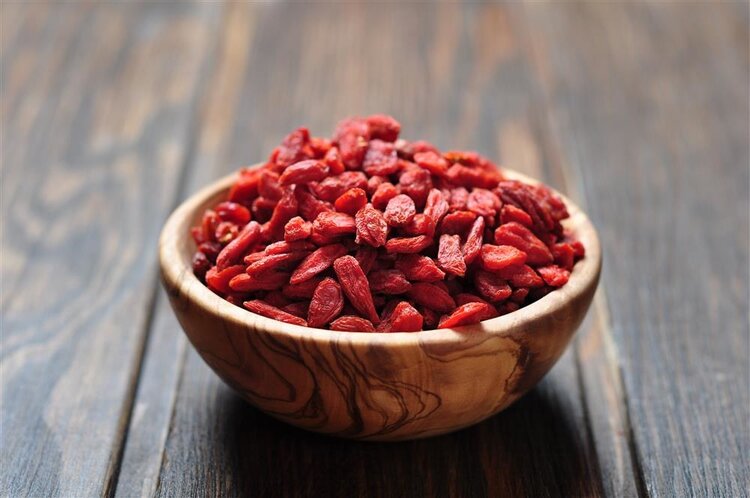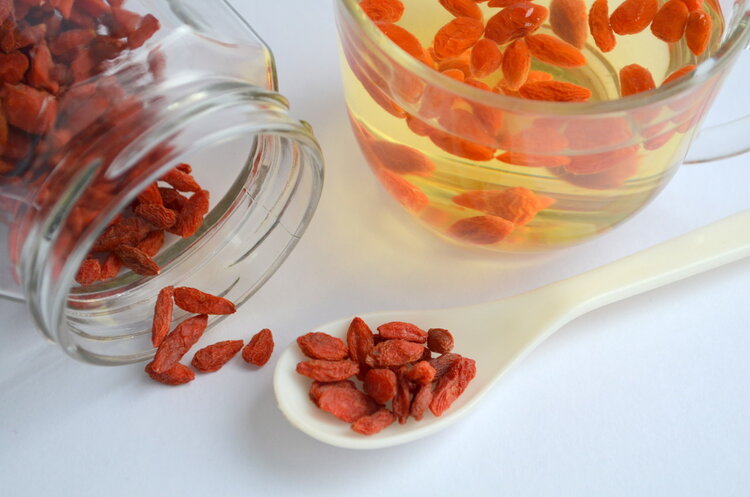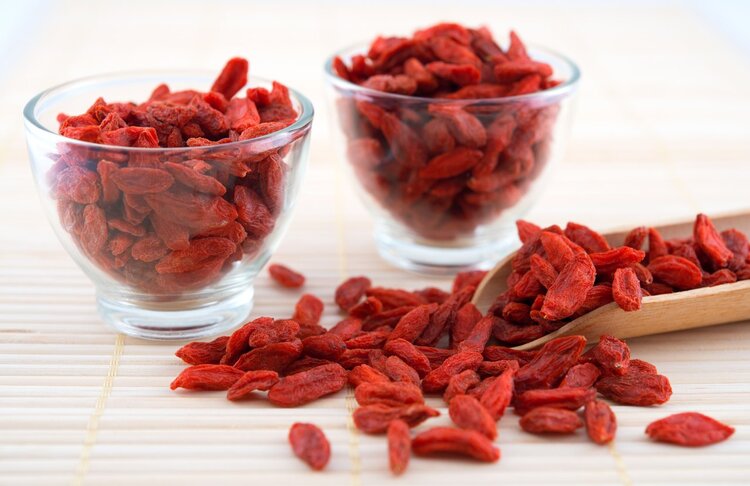Mr. Liu, a 45-year-old man, was diagnosed with diabetes last year. Although he has been taking medication to manage his condition, his blood sugar levels have not been well controlled. Recently, he heard that goji berries could help nourish the kidneys and lower blood sugar, so he bought a large quantity and started drinking goji berry water daily. After six months, not only did his blood sugar fail to drop, but he also developed symptoms such as dark yellow urine and a thick white tongue coating. A visit to the doctor revealed that these were signs of internal heat, and he was advised to stop consuming goji berry water.
This left Mr. Liu puzzled: Isn’t goji berry supposed to lower blood sugar? Why did it cause other health issues instead?

1. Can Goji Berries Really Nourish the Kidneys and Boost Vitality?
According to the Chinese Pharmacopoeia, goji berries are the dried ripe fruits of the Lycium barbarum plant, which belongs to the Solanaceae family. They are sweet and neutral in nature, targeting the liver and kidney meridians, and are known to nourish the liver and improve eyesight. Goji berries have a long history in China, with records dating back to the Han Dynasty in the *Shennong Ben Cao Jing*, which states that goji berries can replenish vital essence, and the *Yaoxing Lun*, which highlights their ability to improve vision, calm the mind, and promote longevity.
In modern medicine, goji berries are often used to address symptoms such as dizziness, tinnitus, lower back pain, knee weakness, and vision decline caused by kidney essence deficiency and blood deficiency. They can be used alone or in combination with other herbs like *Rehmannia glutinosa* and *Schisandra chinensis* to enhance their effects. Additionally, goji berries have mild lung-moistening properties and can help treat dry coughs caused by yin deficiency.
Dr. Li Haoran, Deputy Chief Physician of the Gastroenterology Department at Yichang Hospital of Traditional Chinese Medicine, explains that goji berries do indeed have kidney-nourishing, essence-boosting, liver-nourishing, and vision-improving effects. They are particularly beneficial for middle-aged individuals who often experience symptoms like blood and essence deficiency, cold intolerance, heat sensitivity, dizziness, tinnitus, and hearing loss. Modern research has found that goji berries contain various active components, such as betaine, polysaccharides, nicotinic acid, and amino acids. Among these, polysaccharides and carotenoids have strong antioxidant properties, helping to combat free radicals and slow aging. Goji berry polysaccharides also promote liver repair, offering liver-protective benefits.
2. How to Eat Goji Berries: A Ranking of Methods by TCM Experts
According to Associate Professor Ning Yanmei from the College of Pharmacy at Gansu University of Chinese Medicine, there are several ways to consume goji berries, each offering unique health benefits:
1. Chewing: Eating goji berries directly maximizes their nutritional value, promoting saliva production and nourishing yin fluids.

2. Making a Paste: Boiling goji berries into a paste preserves their active components and provides strong tonic effects, particularly for improving dull complexions caused by blood and essence deficiency.
3. Cooking in Porridge: Cooking goji berries with rice allows their nutrients to be released and easily absorbed, enhancing their kidney-nourishing and essence-boosting effects.
4. Soaking in Alcohol: Goji berries can be soaked in alcohol to create a tonic wine that promotes blood circulation. However, alcohol consumption is harmful to health, and individuals with liver or kidney issues should avoid this method.
5. Brewing in Water: Drinking goji berry water can help improve vision and nourish the liver, making it suitable for symptoms like blurred vision caused by liver and kidney yin deficiency.

3. Goji Berries Offer Many Benefits, But These 4 Types of People Should Avoid Them
In 2015, China exported 979,000 kilograms of goji berries, worth $107 million, making them a global favorite. However, Li Guohui, Director of the Pharmacy Department at the Cancer Hospital of the Chinese Academy of Medical Sciences, warns that goji berries should be consumed in moderation. The recommended daily intake is no more than 12 grams, taken in small amounts multiple times a day. Overconsumption can lead to internal heat, eye redness, and other adverse effects.
Dr. Zhang Qiong, a renowned TCM physician in Sichuan Province, advises the following groups to avoid goji berries:
1. People with Spleen Deficiency: Goji berries are warm and nourishing, but they can worsen symptoms like poor appetite and indigestion in individuals with weak spleen function.
2. Those with Colds or Fevers: Consuming goji berries during illness can exacerbate internal heat and worsen symptoms.

3. Diabetics and Hypertensive Patients: Goji berries contain high sugar levels, making them unsuitable for diabetics. Their warming nature can also destabilize blood pressure in hypertensive individuals.
4. People with Internal Heat: Goji berries are warm in nature and can aggravate symptoms in those with internal heat.
4. How to Choose High-Quality Goji Berries: Expert Tips
Li Guohui shares a five-character mantra for selecting high-quality goji berries:
1. Look: High-quality goji berries are dark red, not overly bright, and uniform in size with no black spots.

2. Feel: Good goji berries are not sticky or clumped together and have a slightly rough texture.
3. Soak: When soaked in water, high-quality goji berries will float to the surface.
4. Smell: They should have a sweet and sour aroma without any pungent or chemical odors.
5. Taste: Good goji berries taste sweet but not overly so, with a slight sourness and a hint of astringency in the aftertaste.

Conclusion
Goji berries are a common food with notable health benefits, but it’s important to determine whether they are suitable for your specific condition before consuming them. While they can nourish the kidneys, boost vitality, and improve vision, they are not a cure-all and may not be appropriate for everyone, especially those with certain health conditions. Always consult a healthcare professional before incorporating goji berries into your diet.
